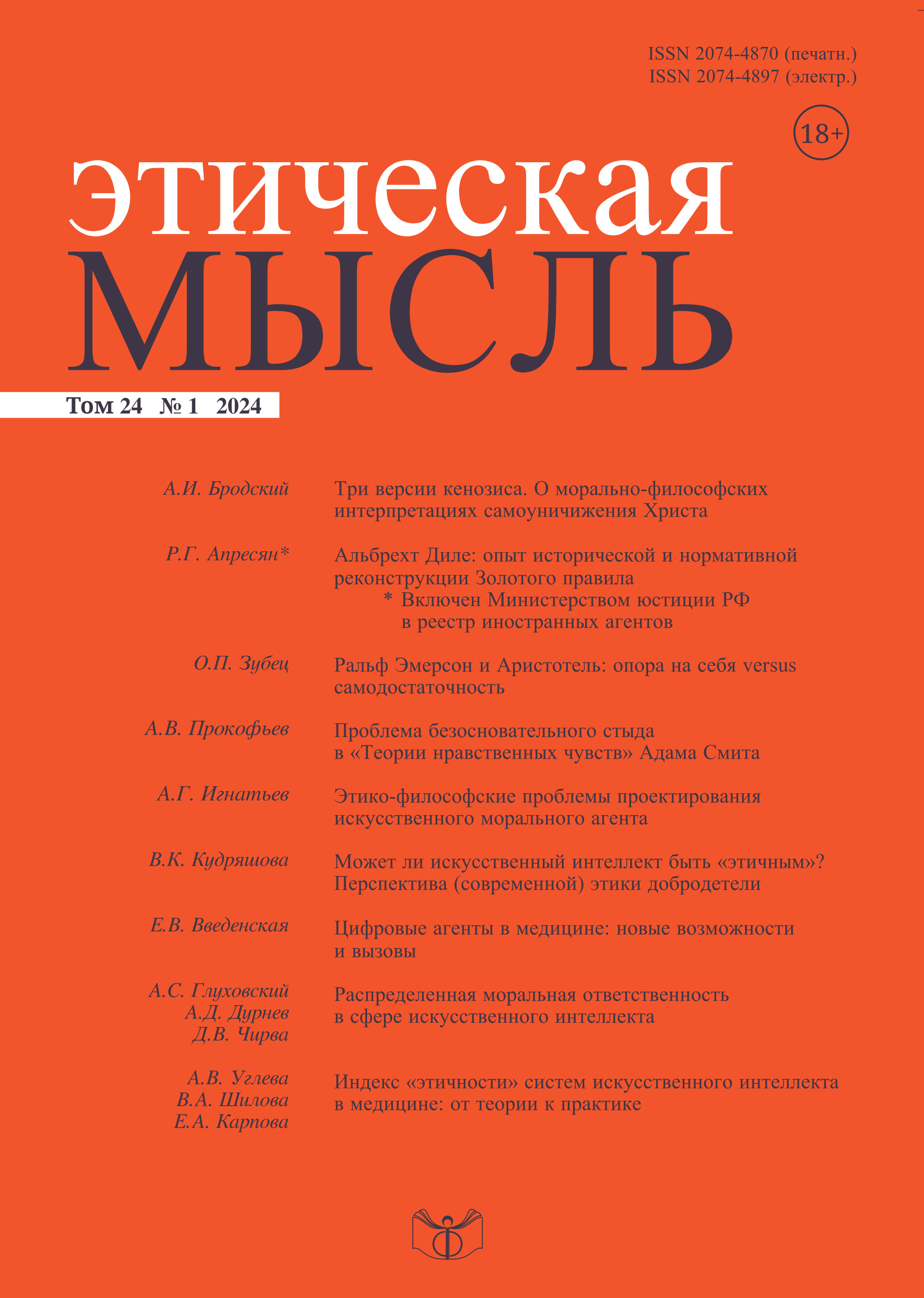Can Artificial Intelligence Be “Ethical”? The Outlook of (Contemporary) Virtue Ethics
DOI:
https://doi.org/10.21146/2074-4870-2024-24-1-101-114Keywords:
virtue ethics, neo-Aristotelianism, moral exemplarism, capability approach, AI, ethics of AIAbstract
The article examines the methodological limitations of the application of (contemporary) virtue ethics in the field of artificial intelligence. The first limitation lies in the theoretical vagueness of “virtue ethics”, since it is only instrumentally interpreted in case of applied ethics’ issues by many researchers: for instance, they often refer only to the principle of golden mean that helps to understand the nature of virtues and to articulate them for AI. This approach is fundamentally wrong, since it selectively considers the main ideas of (contemporary) virtue ethics and uses only those that approve it. The second limitation is that in Aristotelianism and neo-Aristotelianism AI cannot be considered as a moral agent sensu stricto. In this regard, AI is a system that can only imitate the behaviour of a moral agent who is the bearer of a certain set of virtues. Despite the initial negative diagnosis, there are still two approaches in neo-Aristotelianism that can bring light to the possibility of AI ethics. Exemplarism allows us to take a different look at the role of social robots in human life: they can be seen as moral exemplars or narratives that can contribute to the moral development of their owners and change their moral portrait for the better or worse. The capability approach created by M.K. Nussbaum also focuses on the impact of AI on the quality of human life: in this context, we are highlighting what changes basic human capabilities can undergo and how the minimal level of social justice and the respect of human dignity are ensured while using AI technologies.









